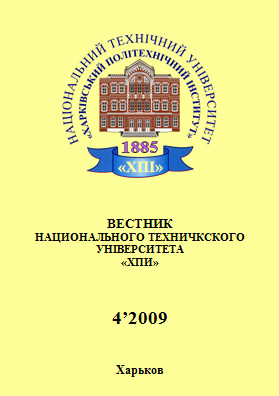Автоматизированный синтез функциональной структуры системы обработки информации и управления
DOI:
https://doi.org/10.20998/%25xAbstract
В статье приведены новые подходы к синтезу систем обработки информации и управления, которые базируются на использовании потенциальных возможностей сложных систем, а также физических и логических закономерностях их поведения.New approaches are led in article to the synthesis systems of processing information and management, which are based on the use of potential possibilities of the difficult systems and also physical and logical regularity their conducts.
References
Михайлов К. М., Кокошко В. С. Методологические аспекты построения информационной структуры автоматизированной системы управления // Вестн. Херсон. нац. техн. ун-та. – 2002. – 1(14). – С. 216-221.
Месарович М., Мако Д., Такахара И. Теория иерархических многоуровневых систем. – М.: МИР, 1973. – 344 с.
Советов Б. Я., Яковлев С. А. Моделирование систем. – М.: Высшая школа. 1998. – 319 с.
Лавинский Г. В. Построение и функционирование сложных систем управления: Учебное пособие. – К.: Вища школа. Головне видавництво, 1989. – 336 с.
Гома Хассан UML. Проектирование систем реального времени, распределенных и параллельных приложений: Пер. с англ. – М.: ДМК Пресс, 2002. – 698 с.
Downloads
How to Cite
Issue
Section
License
Copyright (c) 2017 Bulletin of NTU “Kharkiv Polytechnic Institute”. Series: System Analysis, Control and Information TechnologiesAuthors who publish with this journal agree to the following terms:
- Authors retain copyright and grant the journal right of first publication with the work simultaneously licensed under a Creative Commons Attribution License that allows others to share the work with an acknowledgement of the work's authorship and initial publication in this journal.
- Authors are able to enter into separate, additional contractual arrangements for the non-exclusive distribution of the journal's published version of the work (e.g., post it to an institutional repository or publish it in a book), with an acknowledgement of its initial publication in this journal.
- Authors are permitted and encouraged to post their work online (e.g., in institutional repositories or on their website) prior to and during the submission process, as it can lead to productive exchanges, as well as earlier and greater citation of published work (See The Effect of Open Access).

